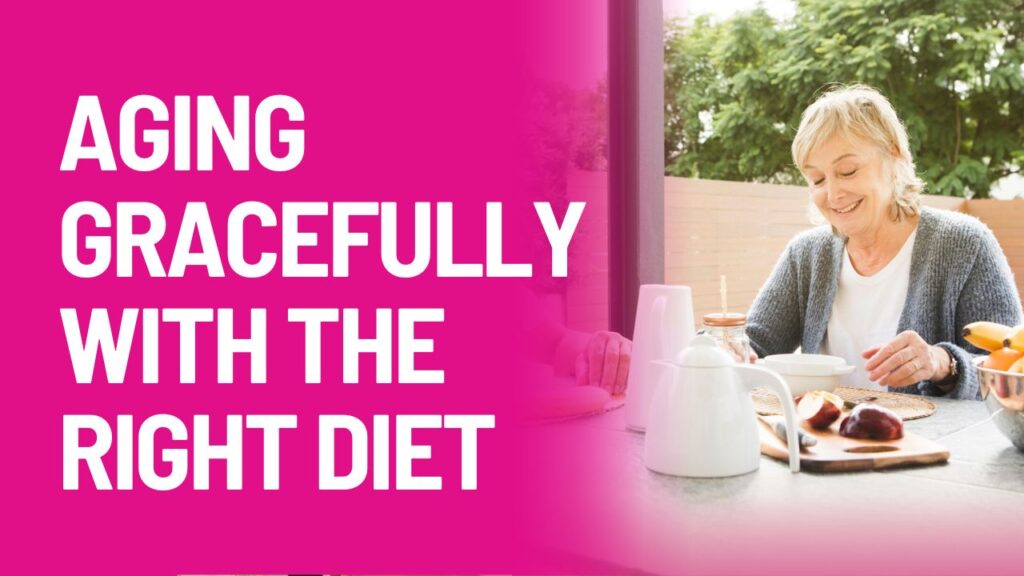Growing older comes with its share of challenges—aches that weren’t there before, a bit more time spent wondering where you left your glasses—but one challenge that’s easy to overcome is maintaining a healthy diet. As we age, our bodies need the right fuel to keep us energized, strong, and thriving. While the foods we loved in our younger years might not serve us the same way anymore, a few tweaks to our diet can make a huge difference in our overall well-being.
In fact, the right diet can support active aging, reduce the risk of chronic illnesses, and help us feel more vibrant, no matter our age. But what exactly does a healthy diet for old age people look like? Let’s explore the best foods for the elderly and how simple dietary changes can positively impact your health and happiness in your elderly age.
The Challenge: Eating Well as We Age
For many seniors, sticking to a healthy diet can feel like an uphill battle. Perhaps your appetite has changed, or you’re less interested in cooking elaborate meals than you used to be. Maybe health issues or medications have altered your taste buds, making food less appealing. On top of that, navigating grocery stores, preparing meals, and figuring out what you should actually be eating can seem overwhelming.
But here’s the good news: eating well doesn’t have to be complicated, and you don’t need to become a master chef to benefit from a healthy diet. A few small adjustments can help you maintain your ageing health, feel energized, and even boost your mood.
A Real-Life Example: Jane’s Journey to Better Eating
Let’s meet Jane, a 72-year-old retiree who’s always enjoyed her morning pastries and afternoon tea with cookies. As she got older, though, she started feeling sluggish, struggled with joint pain, and noticed she wasn’t as active as she used to be. Jane knew something had to change, but she didn’t want to give up all her favorite foods.
After speaking with her doctor and learning about the importance of a balanced diet for old age people, Jane decided to make some small, manageable changes. She replaced her sugary morning pastries with oatmeal topped with fresh berries and nuts—foods packed with antioxidants, fiber, and healthy fats. At lunch, she swapped out her usual ham sandwich for a colorful salad filled with leafy greens, grilled chicken, and olive oil dressing, which supported her joints and gave her a much-needed energy boost.
Over time, Jane noticed a significant improvement in her health. She had more energy to take her daily walks, her joint pain reduced, and she even started sleeping better at night. The best part? She didn’t feel deprived. Jane found that a few simple changes helped her maintain her active aging lifestyle without sacrificing taste.
The Best Foods for the Elderly: What Should You Be Eating?
So, what are the best foods for the elderly to maintain aging and health? Let’s take a look at some nutrient-packed options that can support a healthy, happy life in your golden years:
- Leafy Greens: Spinach, kale, and other leafy greens are packed with vitamins like A, C, and K, which support immune function and bone health. They’re also great for digestion and help reduce inflammation, making them a must for ageing health.
- Fatty Fish: Salmon, mackerel, and sardines are rich in omega-3 fatty acids, which support heart health, reduce inflammation, and improve brain function. These are especially beneficial in old age for preventing cognitive decline.
- Whole Grains: Swap white bread and pasta for whole grains like brown rice, quinoa, and oats. They provide long-lasting energy, are rich in fiber, and help maintain healthy blood sugar levels—important for avoiding the common pitfall of energy crashes.
- Nuts and Seeds: Almonds, walnuts, chia seeds, and flaxseeds offer a powerhouse of nutrients like healthy fats, fiber, and protein. They’re great for heart health and can help keep you feeling full and satisfied.
- Colourful Fruits and Vegetables: Berries, oranges, tomatoes, and peppers aren’t just beautiful to look at—they’re packed with vitamins and antioxidants that fight inflammation and boost the immune system.
- Lean Proteins: As we age, muscle mass tends to decrease. Incorporating lean proteins like chicken, turkey, and tofu can help maintain muscle strength and support active aging.
- Dairy Alternatives or Fortified Dairy: Bone health becomes more critical as we age, and calcium-rich foods like milk, yogurt, and fortified plant-based alternatives can help keep bones strong.
- Water: Staying hydrated is essential at any age, but as we get older, our sense of thirst may diminish. Make sure you’re drinking enough water throughout the day to support all your body’s functions.
The Joy of Eating Well: Keeping It Light and Fun
If you’re imagining a future of boring salads and bland dishes, don’t worry! Eating well doesn’t have to mean giving up the foods you love. The key is to make balanced choices and allow room for treats in moderation. Jane, for example, still enjoys her afternoon tea, but now she pairs it with a small handful of nuts instead of cookies. She’s also found joy in discovering new, delicious recipes that make healthy eating exciting.
Humor can help, too. If you’re ever caught off guard by your body craving something indulgent, just picture a playful inner dialogue between yourself and a younger version of you. “You sure you need that extra slice of cake, or are we just feeling nostalgic?” Keeping a light-hearted perspective can make your journey to better eating feel less like a chore and more like an opportunity to nourish your body.
The Positive Impact: How a Healthy Diet Can Change Your Life
Jane’s story shows us that even small changes to your diet for old age can have a significant impact on your overall well-being. By focusing on nutrient-dense foods, you can enjoy the benefits of active aging—more energy, better mood, improved mobility, and even sharper cognitive function. Plus, eating well helps reduce the risk of common conditions like heart disease, diabetes, and osteoporosis.
Beyond the physical benefits, there’s something deeply empowering about taking charge of your health through diet. Every meal becomes an opportunity to fuel your body with what it needs to thrive, no matter your elderly age.
Conclusion
If you’re ready to make a positive change in your life, why not start with something as simple as what’s on your plate? As we’ve learned, a healthy diet is the cornerstone of active aging, and the best part is that it’s never too late to begin. Whether you’re already eating well or feel like your diet could use a little makeover, now is the perfect time to take action.
Take it from Jane—small, mindful changes can lead to big results. Start by incorporating more fruits, vegetables, and whole grains into your daily routine. Experiment with new recipes, and don’t be afraid to try something different. You don’t have to overhaul your entire diet overnight; just take one step at a time, and soon you’ll feel the difference in your body and your energy.
At CanDoAge, we believe that every day is an opportunity to live better and healthier. So why not make today the day you embrace a diet that supports your well-being? Your future self will thank you for it!

